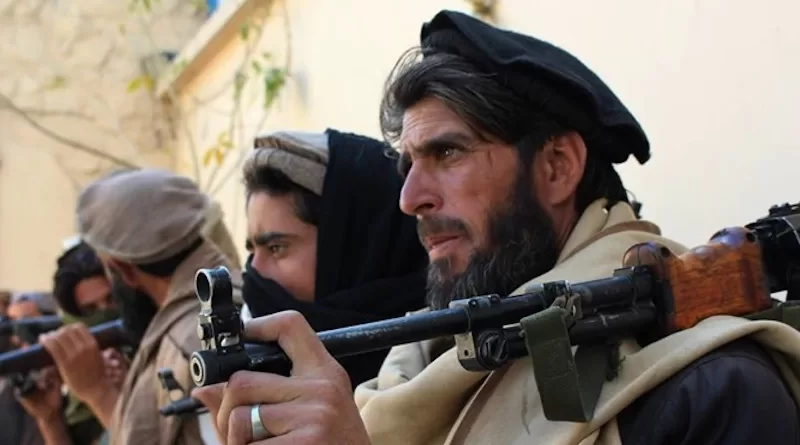Are The US And Taliban Ready To Tango? – Analysis
By Dr. Shanthie Mariet D Souza
Amidst rising violence and a concerted campaign by the Taliban to eliminate the country’s political leaders and top officials, the US appears to be closing in on its end game in Afghanistan – a political solution to the Afghan war. The efforts of arriving at reconciliation with the Taliban is said to be making some progress.
An effort to enter into negotiations with the Taliban had started as early as 2007, after realisation sunk in the Washington that a military victory against the insurgents can not be secured. Since then, military efforts have progressed alongside the effort to bring the reconcilable elements within the Taliban to the negotiation table. The move enjoys the support of the Afghan government and the western coalition who have since shed their inhibition of talking to the insurgents.
The efforts of individual countries to negotiate with the Taliban have, however, only led to creation of multiple and parallel processes doing little to augment the Afghan government’s nascent efforts at peace building. The establishment of the High Peace Council (HPC) last year provided the Taliban an official addresses for negotiations. But this has been undermined both by domestic opposition as well as individual countries, as each of them initiated parallel attempts of negotiating with various factions of the insurgency at different exotic locales.
The US desire to talk to the insurgents from a position of strength, however, continues to be a pipe dream. Drawdown of the US forces from Afghanistan has already begun and by the end of 2012, 33,000 troops would have returned home. The announcement of exit and the consequent draw down has fed into the insurgent propaganda that the “Americans have the watches, but we have the time.”
At the moment the Taliban perceive themselves to be winning. Not only have the Taliban been able to launch a successful campaign of violent retribution, but also have managed to create a power vacuum of sorts in southern Afghanistan by way of targeted assassinations, at a time when critical security handovers were occurring in seven areas. Three major assassinations in less than a month – Ahmed Wali Karzai, half brother of President Karzai and presidential aide Jan Mohammed Khan, both powerful warlords and the Mayor of Kandahar, Ghulam Haider Hamidi- has created a power vacuum in the south with consequent erosion of President Karzai’s support base among the Pushtuns. On July 28, a daredevil and well-coordinated bomb and suicide attacks in Uruzgan province killed 21 people. The attacks had targeted Governor of the province, who escaped unhurt.
Available indications are that the Taliban leadership is ready to negotiate with the United States if Washington indicates its willingness to provide a timetable for complete withdrawal. In the words of Ahmad Shah Ahmadzai, who served as the acting Afghan prime minister between 1995-96 and who apparently set up a secret meeting between a senior Taliban official and a US general two years ago, Taliban is willing to cut off its ties with the Al Qaeda, fulfilling a key demand of the US.
Sceptics have frequently argued whether the reconciliation process involves the Taliban leadership based in Quetta (known as the Quetta Shura) or is it simply trying to rope in people who have grown irrelevant to the insurgent movement, sometimes including even impostors. Sometime in 2009, the negotiation prospect with the Taliban appeared to have made some progress through a Taliban commander Mullah Baradar, second in command to Mullah Omar, the chief of the Taliban. However, Pakistani establishment fearing being sidelined, stepped in and arrested Baradar in early 2010, throwing the entire process off track. Baradar was later released with US intervention. The same process appears to have resumed now, with the consent of Mullah Omar. Some other sources identify Tayyeb Agha, head of the political committee of the Taliban as another key interlocutor for the ongoing back channel talks. Tayyeb was rumoured to have been arrested by Pakistan in 2010 along with some other Taliban leaders.
While confusion on the identity of the interlocutors may be a lesser problem of the huge issue at hand, there remain several critical hurdles for the parties involved to make any headway. The most important is the demand of the US that it would retain access to five bases within Afghanistan beyond 2014. This is not acceptable to the Taliban. In my earlier post, “What’s with the secrecy surrounding the US-Afghan strategic partnership?” I had delved in detail on the prospects of long-term US troop presence beyond 2014, a key component of the US-Afghan strategic partnership discussions, would complicate the negotiation process. President Karzai worries that the talk of permanent presence of US troops would be an impediment for negotiations with the Taliban who have demanded complete withdrawal of foreign forces as a precondition for talks.
As the contours of the negotiations remain unclear, concerns abound among the Afghans. The high profile killings in the north and systematic elimination of those who oppose the negotiations process have once again raised fears among other ethnic and women groups. As the west is seen to be in a rush to disengage, the search for ‘quick fix’ solutions has intensified. Will this once again precipitate condition to the return of anarchy is a moot question.
This article first appeared at Al Arabiya and is reprinted with permission

